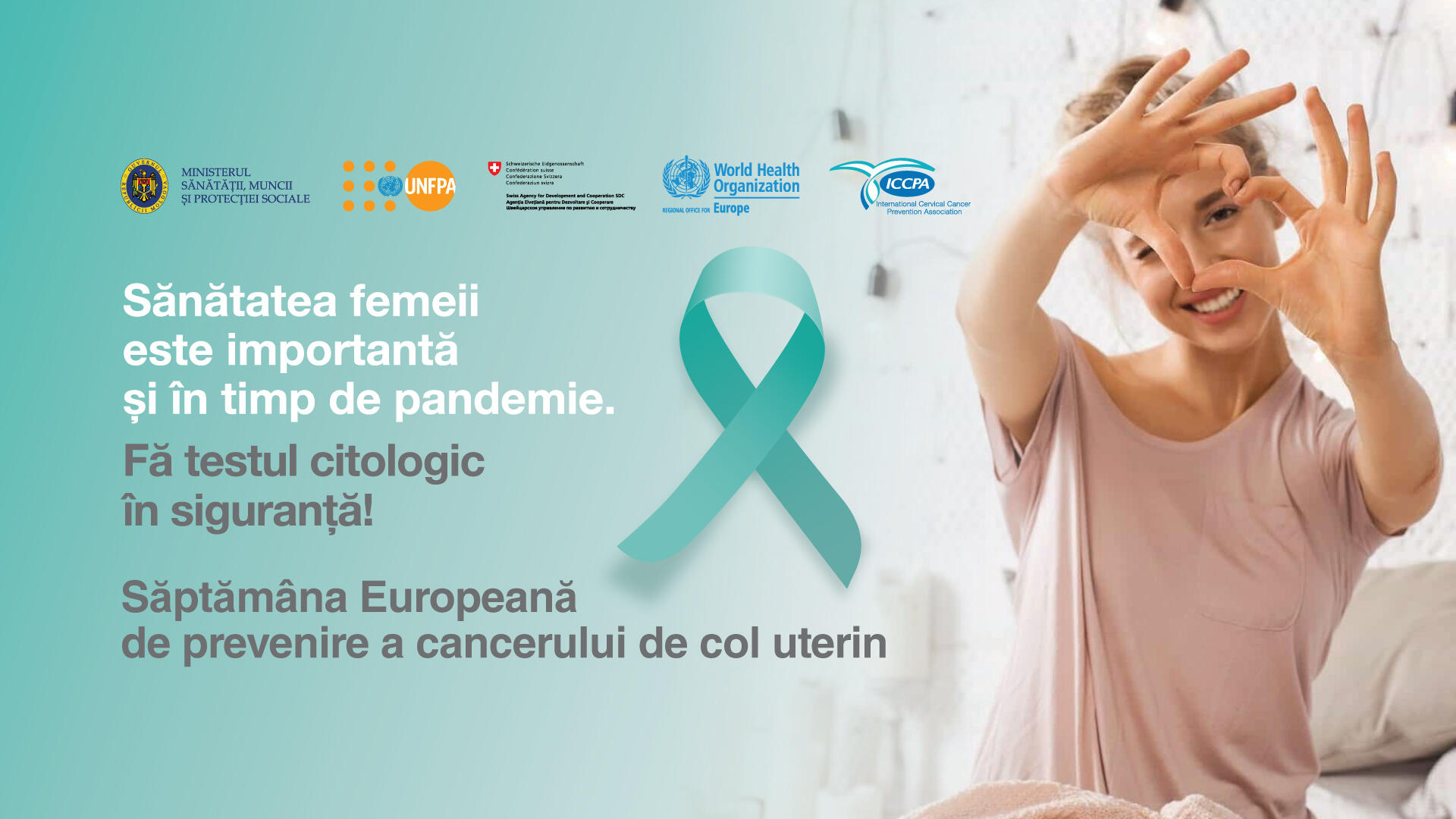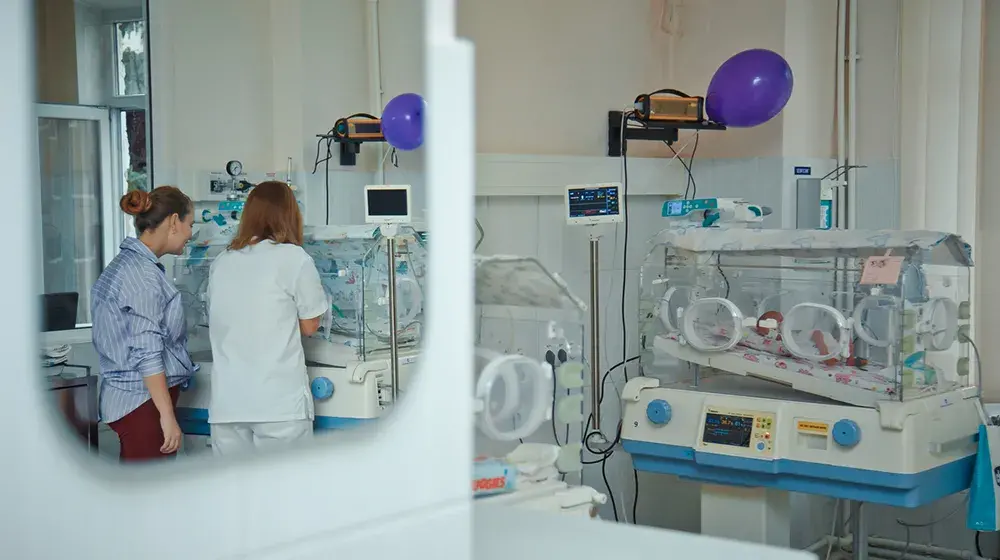The Ministry of Health, Labor and Social Protection / Cervical Screening Implementation Coordination Unit, in partnership with the UN Population Fund (UNFPA), the Swiss Agency for Development and Cooperation (SDC), and other partners, launched the Cervical Cancer Prevention Week 2021. The campaign takes place from January 25 to 31.
Dozens of organizations and institutions, including the Customs Service, General Police Inspectorate, Moldcell Foundation, and the medical community, local public authorities, civil society, Youth Centers, Youth Friendly Health Centers, journalists, and opinion leaders, joined the campaign to promote women's health.
This year's campaign focuses on preventing and promoting screening and vaccination as primary tools that can significantly reduce this disease's risk.
"Life and health are a priority, regardless of challenges and pandemic. Despite all the problems caused by COVID-19, we have continuously ensured women's access to safe cervical screening services. I urge you to take care of your health, to make an appointment with your family doctor and to have a cytological test, once every 3 years. The test is free of charge. Likewise, vaccination against Human Papilloma Virus during adolescence, contributes significantly to reducing the rate of cervical cancer. Love yourself! Love your mothers, sisters, wives, girlfriends and encorage them to do the cytological test!", Tatiana Zatîc, Secretary of State at the Ministry of Health, Labor and Social Protection, said.
"The study on Knowledge, Attitudes, and Practices in the field of cervical cancer prevention," conducted in 2020, shows that the trend of performing the cytological test in the Republic of Moldova is positive. Awareness of women aged 25 to 61 about the cytological examination increased from 47% in 2018 to 62% in 2020. The share of women who performed, as a result of their knowledge, the prevention test has doubled in the last two years.
"More than ever, we need to join efforts now to accelerate a positive trend and reach ZERO cases of women dying of cervical cancer because this disease is preventable. Three steps are essential for eliminating cervical cancer: vaccination, screening, and effective treatment. Successful implementation of these measures globally could reduce the prevalence of the new cases by more than 40% and save the lives of 5 million women by 2050", said Nigina Abaszada, UNFPA Resident Representative in Moldova.
Cervical cancer is one of the diseases in women, which can be easily prevented by vaccination against Human Papilloma Virus (HPV) in adolescence and the cytological test, performed every 3 years, between 25-61 years, free of charge at the family doctor.
In our country there are 4182 women affected by cervical cancer, which is 227.1 per 100 thousand female population. About 300 new cases are registered annually, respectively 17.1 per 100 thousand female population. 47 percent are cases detected in the early stage (stage I and II), the patients following specific treatment.
The the most common age of women with cervical cancer is 40-45 years and 50-60 years. Unfortunately, about 160 women die each year from this disease.
During the Cervical Cancer Prevention Week, the organizers will run public information and awareness actions to urge women to make an appointment at the family doctor and perform a prevention citologycal test. The Customs Service and the General Inspectorate of Police will distribute information brochures on cervical screening. The Moldcell Foundation will support an SMS informative campaign. As in other years, the medical institutions will promote videos on preventing cervical cancer. Influencers and opinion leaders will have supporting messages in social media encouraging women to stay healthy and take care of their health.
More details: www.paptest.md





